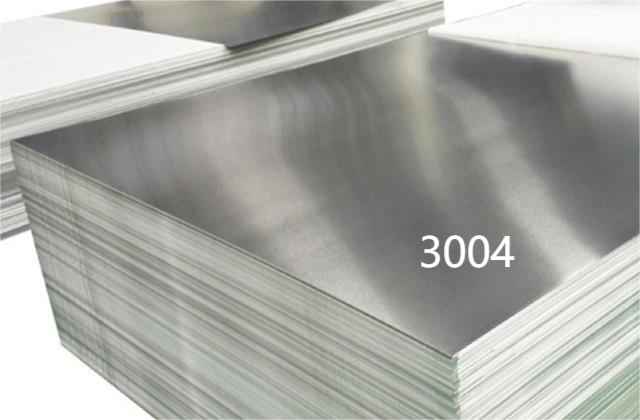3003 aluminum plate and 3004 aluminum plate are two common types of aluminum alloy sheets. They have some differences in chemical composition, mechanical properties, and application fields.

1. Chemical composition
The main component of 3003 aluminum plate is aluminum, with the addition of 0.12% to 0.35% iron, 0.1% copper, 0.05% manganese, and 1.0% silicon. The 3004 aluminum plate is relatively covered with more elements, including aluminum, iron, silicon, copper, and manganese.
2. Mechanical performance
The mechanical properties of 3003 aluminum plate and 3004 aluminum plate are also different. The tensile strength of 3003 aluminum plate is 115-200 MPa, yield strength is 40-150 MPa, and elongation is 5-30%. The tensile strength of 3004 aluminum plate is 180-230 MPa, yield strength is 150-180 MPa, and elongation is 2-10%.

3. Application field
Due to different compositions and mechanical properties, 3003 aluminum plate and 3004 aluminum plate also have different application fields. 3003 aluminum plate performs well in dry, humid, semi dry and marine environments, and is widely used in cleaning devices, heat exchangers, air conditioning and refrigerators, as well as indoor decoration and other fields. Due to its high strength and good corrosion resistance, 3004 aluminum plate is commonly used in the manufacturing of automotive body parts, tank bodies, tank covers, painted panels, aluminum shells, pipelines, and coated panels.
In summary, there are differences between 3003 aluminum plate and 3004 aluminum plate in terms of chemical composition, mechanical properties, and application fields. Therefore, when selecting aluminum alloy sheets, it is necessary to choose according to specific usage and process requirements.


